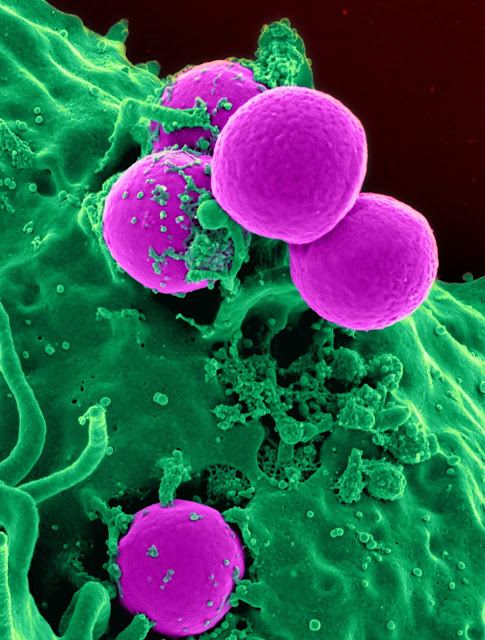Researchers discover the microbiome's role in attacking cancerous tumors.
Researchers discover the microbiome's role in attacking cancerous tumors.
Researchers have discovered which gut bacteria help our immune system battle cancerous tumors and how they do it. The discovery may provide a new understanding of why immunotherapy, a treatment for cancer that helps amplify immune response, works in some cases, but not others. The findings show combining immunotherapy with specific microbial therapy boosts the immune system to recognize and attack cancer cells in three forms of cancer.
Share:
Researchers with the Snyder Institute for Chronic Diseases at the Cumming School of Medicine (CSM) have discovered which gut bacteria help our immune system battle cancerous tumors and how they do it. The discovery may provide a new understanding of why immunotherapy, a treatment for cancer that helps amplify the body's immune response, works in some cases, but not others. The findings, published in Science, show that combining immunotherapy with specific microbial therapy boosts the immune system's ability to recognize and attack cancer cells in some melanoma, bladder, and colorectal cancers.
Dr. Kathy McCoy, Ph.D., is a leading expert on the body's relationship with the microbiome. She and her team are focused on harnessing the microbiome's power to improve health and treat diseases. McCoy says to harness and direct that power; scientists need to understand better the role bacteria play in regulating the immune system.
"Recent studies have provided strong evidence that gut microbiota can positively affect anti-tumor immunity and improve the effectiveness of immunotherapy in treating certain cancers, yet, how the bacteria were able to do this remained elusive, " says McCoy, director of the International Microbiome Centre at the University of Calgary and principal investigator on the study.
"We've been able to build on that work by showing how certain bacteria enhance the ability of T-cells, the body's immunity soldiers that attack and destroy cancerous cells."
First, the researchers identified bacterial species that were associated with colorectal cancer tumors when treated with immunotherapy. Working with germ-free mice, they then introduced these specific bacteria along with immune checkpoint blockade, a type of cancer immunotherapy. The research revealed that specific bacteria were essential to immunotherapy working. The tumors shrank drastically. For those subjects that did not receive the beneficial bacteria, the immunotherapy did not affect.
"We found that these bacteria produce a small molecule, called inosine," says Dr. Lukas Mager, MD, Ph.D., a senior postdoctoral researcher in the McCoy lab and first author on the study. "Inosine interacts directly with T-cells and together with immunotherapy, it improves the effectiveness of that treatment, in some cases destroying all the colorectal cancer cells."
The researchers then validated the findings in both bladder cancer and melanoma. The next step in this work will be to study the result in humans. The three beneficial bacteria associated with the tumors in mice have also been found in cancers in humans.
"Identifying how microbes improve immunotherapy is crucial to designing therapies with anti-cancer properties, which may include microbial," says McCoy. "The microbiome is an amazing collection of billions of bacteria that live within and around us every day. We are in the early stage of fully understanding how we can use this new knowledge to improve the efficacy and safety of anti-cancer therapy and improve cancer patient survival and well-being."
Story Source:
Materials provided by the University of Calgary.
Journal Reference:
- Lukas F. Mager, Regula Burkhard, Nicola Pett, Noah C. A. Cooke, Kirsty Brown, Hena Ramay, Seungil Paik, John Stagg, Ryan A. Groves, Marco Gallo, Ian A. Lewis, Markus B. Geuking, Kathy D. McCoy. Microbiome-derived inosine modulates response to checkpoint inhibitor immunotherapy. Science, 2020; eabc3421 DOI: 10.1126/science.abc3421




Comments
Post a Comment